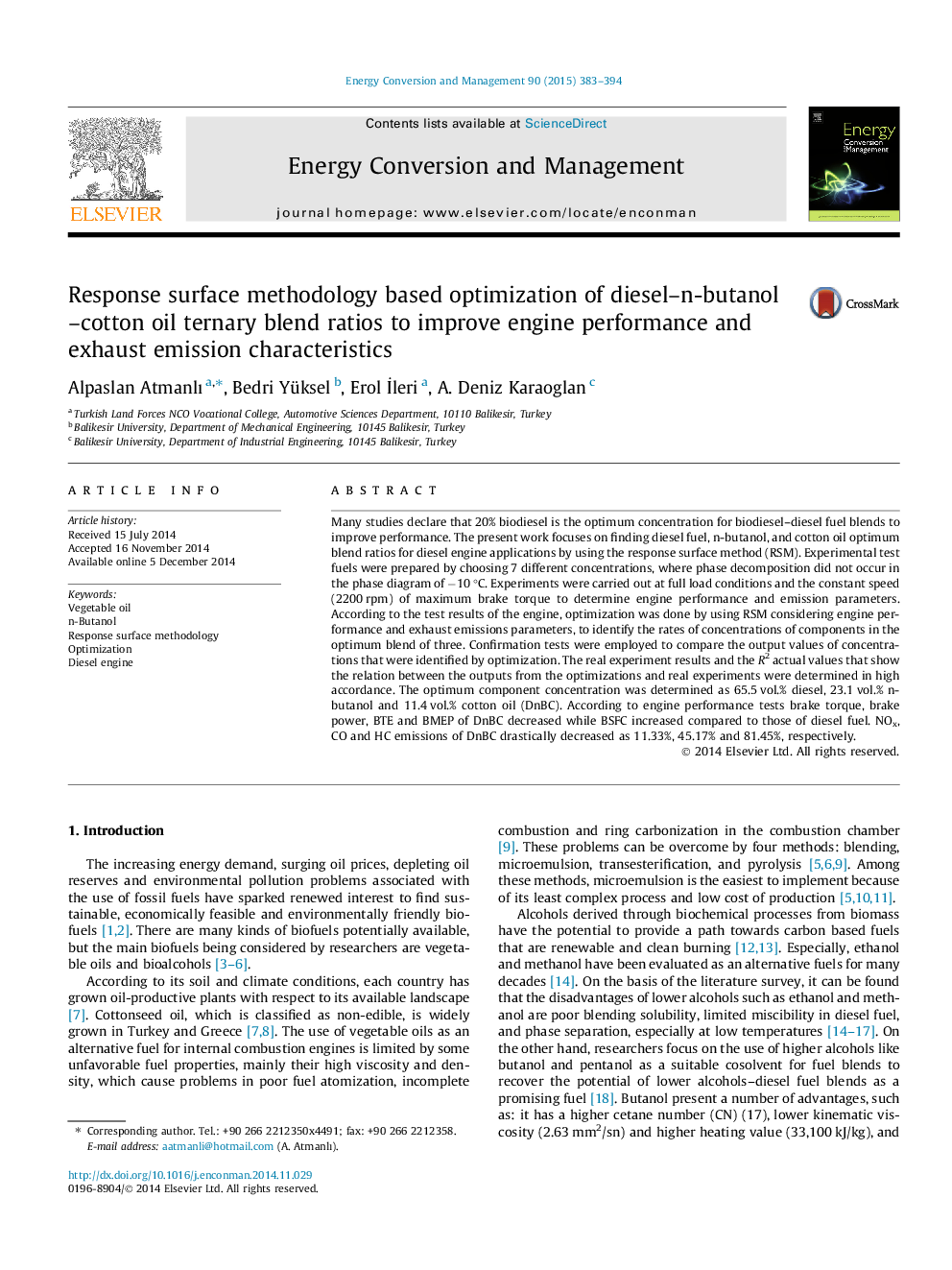| Article ID | Journal | Published Year | Pages | File Type |
|---|---|---|---|---|
| 771823 | Energy Conversion and Management | 2015 | 12 Pages |
•RSM based optimization for optimum blend ratio of diesel fuel, n-butanol and cotton oil was done.•65.5 vol.% diesel fuel, 23.1 vol.% n-butanol and 11.4 vol.% cotton oil (DnBC) was determined.•DnBC decreased brake torque, brake power, BTE and BMEP, while increased BSFC.•DnBC decreased NOx, CO and HC emissions.
Many studies declare that 20% biodiesel is the optimum concentration for biodiesel–diesel fuel blends to improve performance. The present work focuses on finding diesel fuel, n-butanol, and cotton oil optimum blend ratios for diesel engine applications by using the response surface method (RSM). Experimental test fuels were prepared by choosing 7 different concentrations, where phase decomposition did not occur in the phase diagram of −10 °C. Experiments were carried out at full load conditions and the constant speed (2200 rpm) of maximum brake torque to determine engine performance and emission parameters. According to the test results of the engine, optimization was done by using RSM considering engine performance and exhaust emissions parameters, to identify the rates of concentrations of components in the optimum blend of three. Confirmation tests were employed to compare the output values of concentrations that were identified by optimization. The real experiment results and the R2 actual values that show the relation between the outputs from the optimizations and real experiments were determined in high accordance. The optimum component concentration was determined as 65.5 vol.% diesel, 23.1 vol.% n-butanol and 11.4 vol.% cotton oil (DnBC). According to engine performance tests brake torque, brake power, BTE and BMEP of DnBC decreased while BSFC increased compared to those of diesel fuel. NOx, CO and HC emissions of DnBC drastically decreased as 11.33%, 45.17% and 81.45%, respectively.
Graphical abstractFigure optionsDownload full-size imageDownload as PowerPoint slide
